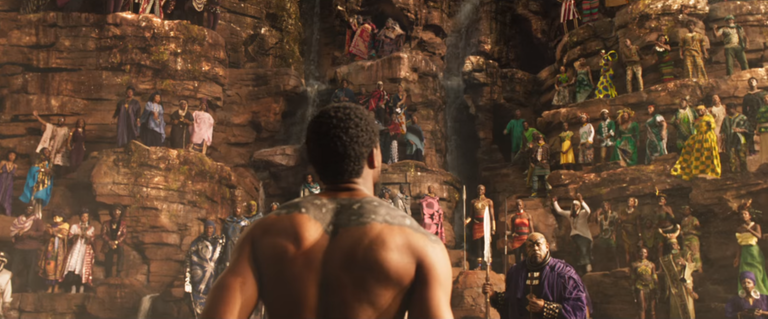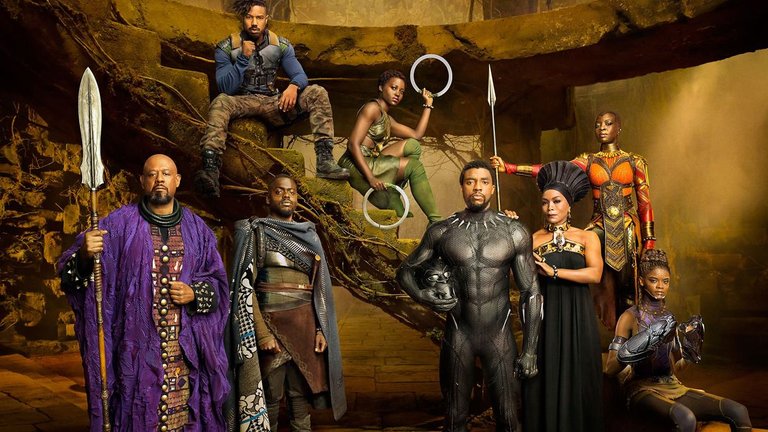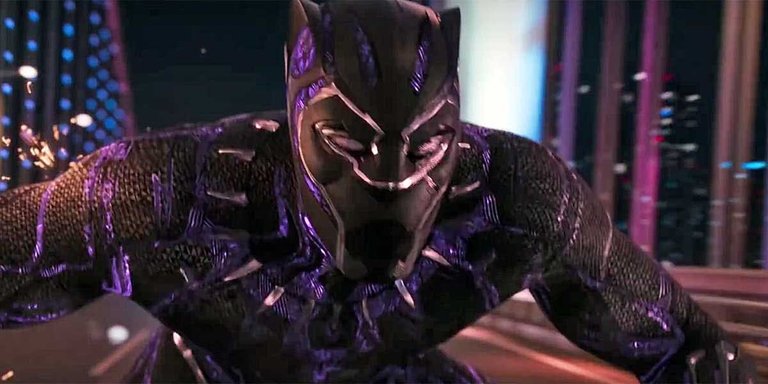The excitement around Black Panther, Marvel’s first black superhero movie, is deafening. The film, released last weekend, has brought in an estimated $192 million for its three-day debut in North America and $361 million worldwide. That's the fifth biggest domestic opening of all time.
According to the movie tickets site Fandango, it has pre-sold more tickets than any other superhero movie. The buzz seems justified: Movie critics are calling it “incredible, kinetic, purposeful” and “as touching as it is thrilling.”

There are many reasons for why that is. Marvel superhero films tend to do well, the film has an all-star cast, and more generally, people think it’s a good movie.
But there are socioeconomic facts that support the film’s cultural significance. When it comes to diversity, Hollywood has a long way to go, especially if it wants to appeal to the evolving demographic profile of the United States.
Despite huge box office potential among black audiences. African Americans, on average, visit theaters 13.4 times a year, compared to the 11 visits made by the average American.
It’s a cultural phenomenon, a necessary and joyous tribute to being black—not just in America, but in the global African diaspora. Celebrities are buying out theaters in underserved neighborhoods so black children can see faces like their own onscreen. Nigerians, Kenyans, and Ghanaians are sporting traditional garb to see the movie.

It also provides evidence indicating that minority audiences are more avid media consumers than the rest of the country. And America's current best census estimates indicate that the American population will become majority-minority in a matter of decades.
Black Panther has an almost entirely black cast and a black director. That’s a gift for black girls and boys everywhere who aren’t used to seeing themselves onscreen—and it’s a gift for non-black people, too.

This might be even more important for non-black children. As Black Panther costumes hit the shelves, nervous parents are agonizing (paywall) over whether to encourage their non-black children to dress up as the King of Wakanda.
In short, they should. Children today will hopefully be able to look up to many more black and brown heroes as they grow up—just as kids of all races and genders have long played out their childhood superhero fantasies as white males such as Superman and Batman.

Many non-black people are also eager to share in this worldwide celebration. But it’s easy to feel nervous about how to engage in and respectfully support the identity-focused wave of elation. The answer is clearly not to mute that excitement. But know this: If you’re white, this is one time that you won’t see someone who looks like you onscreen fighting villains, commanding power, or saving innocent people. And that’s precisely why you should go see this film.
Upvote, Resteem, Comment & Follow to me on

Support me by upvoting and commenting my other top articles below:-
1.https://steemit.com/food/@aksharsharma/revolving-sushi-joint-sushi-came-alive-and-tried-to-escape
2.https://steemit.com/photography/@aksharsharma/not-just-perfect-click-it-s-the-cutest-clicks